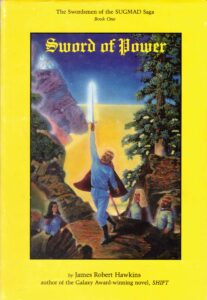
As I told you not too very long ago .. oh, who am I fooling? it’s been quite over a month now … I recently passed the eleven hundredth book read in my little silly book tracking project. And that means it’s time once again to foist upon you a listing of all of the last hundred books read, with a few callouts for this or that special item. (The Dirty Old Man book, for example, was the 1100th Book Read and thus worthy of note because of the random milestone crossed.

My last hundred began with Well-Springs Of Wisdom: From The Writings Of Frederick W. Robertson, which is a ‘greatest hits’ set of quotations, extracts from the sermons of this once oh-so-fashionable preacher in England away back in the first half of the 19th Century. I’ve loved some of his sermons preached at Bath, and thought his insights into the nature of language to be intriguing. So I was quite interested in this survey capturing his thoughts on any number of subjects. I found many inspirational insights, much to like in this volume … and then I stumbled over his views about the place of (Christian) women. Sigh. Would his perspective have mellowed if he’d lived longer? (He died at the age of 37.) Who can say?

Of all the perfect little nothings I’ve ever read, this beautiful incredible tale, Rock Crystal, is among the best. Adalbert Stifter builds a story where nothing really happens at all, creating the most wrenching drama of two little children who— But I dare not say more. Just read the book, and be sure to skip the W. H. Auden introduction (actually a book review pasted into the front of this NYRB Classic edition, perhaps to bolster the wafer-thin page count) until you read the text itself. It is an excellent, gripping, moving, overwhelming tour de force. Oh, and also, let’s not forget my usual caveats and explanations about books read and numbers and all that. Basically, I only count non-comic books as books read, though I do track the total volume in a separate field. All right, onto the beginning of the list.
| # |
Read |
Author |
Title |
Genre |
| 1001 |
8/15/23 |
Frederick W. Robertson |
Well-Springs Of Wisdom: From The Writings Of Frederick W. Robertson |
Religion & Spirituality |
| 1002 |
8/16/23 |
John Portmann |
When Bad Things Happen to Other People |
Philosophy |
| 1003 |
8/17/23 |
Jane P. Resnick |
International Connoisseur’s Guide to Cigars: The Art of Selecting and Smoking |
Cooking |
| 1004 |
8/18/23 |
Steve Alten |
Meg |
Mystery |
| 1005 |
8/18/23 |
Aldous Huxley |
Brave New World |
Fiction |
| 1006 |
8/20/23 |
Tommaso Landolfi |
Words in Commotion and Other Stories |
Fiction |
| 1007 |
8/21/23 |
Kenneth Bulmer / Brian M. Stableford |
The Wizards Of Senchuria / Cradle Of The Sun |
SF & Fantasy |
| 1008 |
8/21/23 |
Daniel Pinkwater |
The Magic Moscow |
Children’s |
| 1009 |
8/21/23 |
Adalbert Stifter |
Rock Crystal |
Fiction |
| 1010 |
8/28/23 |
Leonard Shlain |
The Alphabet Versus the Goddess: The Conflict Between Word and Image |
Sociology |

The best book I read in the next set of ten was a re-read, Tony Hillerman’s 4th novel featuring his police detectives from the Navaho Reservation, People Of Darkness. I went back to this one (originally this was the 95th book I read, way back in 2016) because I wanted to compare the plot with the second AMC TV miniseries drawn from Hillerman’s books. The book came out best in the comparison, though the television program was not as reprehensible a reworking of the original material as the first time around. Still and all, I enjoyed the book. Chee is a much stronger, much better character in the book, and his character has that ring of truth which is the hallmark of good fiction.
Sadly, no newly read book in this set came up to the same high standard as the Leaphorn & Chee mystery. There were several books I liked, and the Orhan Pamuk book might have been fine if he hadn’t made the classic literary mistake of trying to color his fiction as a mystery.
| # |
Read |
Author |
Title |
Genre |
| 1011 |
8/29/23 |
Paul Guinan & Anina Bennett |
Boilerplate: History’s Mechanical Marvel |
SF & Fantasy |
| 1012 |
8/30/23 |
Robert S. Baker |
Brave New World: History, Science, and Dystopia |
Literary Criticism |
| 1013 |
9/1/23 |
Philip José Farmer |
Hadon Of Ancient Opar |
SF & Fantasy |
| 1014 |
9/2/23 |
Michael Bonner, ed. |
Uncut Magazine June 2023 |
Music |
| 1015 |
9/3/23 |
Francis Wheen |
Hoo-hahs and Passing Frenzies: Collected Journalism |
Essays |
| 1016 |
9/4/23 |
Eugen Herrigel |
Zen |
Religion & Spirituality |
| 95* |
9/5/23 |
Tony Hillerman |
People Of Darkness |
Mystery |
| 1017 |
9/9/23 |
Orhan Pamuk |
My Name Is Red |
Mystery |
| 1018 |
9/10/23 |
Daniel Pinkwater |
Attila the Pun: A Magic Moscow Story |
Children’s |
| 1019 |
9/13/23 |
John Scalzi |
Old Man’s War |
SF & Fantasy |
| 1020 |
9/13/23 |
William Osler |
A Way Of Life |
Psychology |
*See above

Although I cannot claim to love all of the works gathered here, especially some of the later writings which trail off a bit from his earlier verve, and though The Master of Ballantrae to me was a terrible tale of family abuse, there was much to love in this one-volume edition of The Works Of Robert Louis Stevenson. Oh, this book wasn’t complete, missing Quentin Durward and The Black Arrow, among other things. But there’s enough adventure and excitement in these tales to keep the interest of any red-blooded boy. On the other hand, one can make a strong case that Stevenson peaked with Treasure Island, which remains one of the best pirate stories ever. Of All Time. Still, even a gradual decline from that great height spans a taller reach than most, including the masterful (and even more mysterious in the original) Dr. Jekyll and Mr. Hyde. (Though supposedly Stevenson said that the protagonist of that book had his name pronounced ‘jee-kul’.)
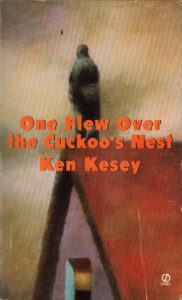
Finally got around to reading Ken Kesey’s masterwork, One Flew Over The Cuckoo’s Nest. Wow. What a stunner. At one point I got so distracted by McMurphy’s calculated use of the n-word that I almost lost sight of the fact that Cool Hand Luke and so many other American Christ tales have used so much of what was contained in this shattering, stellar, brilliant novel. Having seen the movie long, long ago (it was the first R-rated picture ever I saw), I thought I knew the story. But reading this prose made me (finally) understand what all the fuss about Kesey was all about.
| # |
Read |
Author |
Title |
Genre |
| 1021 |
9/14/23 |
Daniel Pinkwater |
Devil In The Drain |
Children’s |
| 1022 |
9/18/23 |
Ken Kesey |
One Flew Over The Cuckoo’s Nest |
Fiction |
| 1023 |
9/25/23 |
Charlotte Joko Beck |
Everyday Zen: Love & Work |
Religion & Spirituality |
| 1024 |
10/1/23 |
Michael Bonner, ed. |
Uncut Magazine July 2023 |
Music |
| 1025 |
10/4/23 |
Robert Louis Stevenson |
The Works Of Robert Louis Stevenson |
Fiction |
| 1026 |
10/4/23 |
Michael S. Kimmel |
Revolution: A Sociological Interpretation |
Sociology |
| 1027 |
10/5/23 |
Daniel Pinkwater |
The Muffin Fiend |
Children’s |
| 1028 |
10/10/23 |
Terence Real |
I Don’t Want to Talk About It: Overcoming the Secret Legacy of Male Depression |
Psychology |
| 1029 |
10/11/23 |
Kenneth Bulmer / Jeff Sutton |
The Ships Of Durostorum / Alton’s Unguessable [Ace Double 76096] |
SF & Fantasy |
| 1030 |
10/14/23 |
Tim F. LaHaye |
Revelation, Illustrated and Made Plain |
Spirituality |
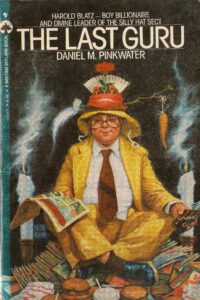
I’ve spoken before of just how great a writer Daniel Pinkwater is. (See the book list for the last hundred and my quick note about his novel Wingman.) But I was blown away once more by just how well Mr. Pinkwater crafts that most delicate and difficult work, the short young adult novel. Sure, we have series galore and werewolf vs. vampire romance fantasies that we aim like a flamethrower at the potential readers in middle school nowadays, but those kids who fell in love with Judy Blume or Robert Cormier or Scott O’Dell can attest to a love of reading books that didn’t talk down to them while also speaking directly to them, a love which often translated into a lifelong love of the written word. And Daniel Pinkwater can work this same magic, though he is much, much less dark than those other expert writers. In The Last Guru, Pinkwater weaves a truly transcendental tale and creates an almost perfectly enlightened book. Words fail me, and I simply cannot express how tremendous, staggering, amazing … well, words fail me. There are things that some will take issue with, but this tale of spiritual power is super, in spite of a strange animadversion to Iceland.
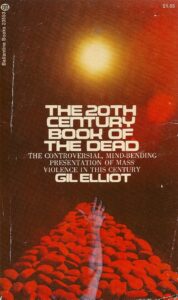
Sociology? History? Something entirely new? Gil Elliot calls The 20th Century Book Of The Dead a ‘necrology’ of the macro-violent deaths of the 20th Century. And this little book is very sobering, even moreso when you realize that this book covers the murder machine of modern life only up to 1972. This bold investigator hammers home just how staggeringly big was the modern invention of mass death techniques, and asks some perhaps unanswerable questions about how and what and wherefore. I found even his more questionable points worthy of note, in this thoughtful and thought-provoking book.
| # |
Read |
Author |
Title |
Genre |
| 1031 |
10/16/23 |
Daniel Pinkwater |
The Last Guru |
Children’s |
| 1032 |
10/21/23 |
Steve Paulson & Pam Paulson |
Church Signs Across America |
Humor |
| 1033 |
10/22/23 |
Fritz Leiber |
The Swords Of Lankhmar |
SF & Fantasy |
| 1034 |
10/23/23 |
Roald Dahl |
Matilda |
Children’s |
| 1035 |
10/23/23 |
Jerry Patton |
Satan’s Angel |
Pornography |
| 1036 |
10/23/23 |
R. A. Montgomery |
Mystery Of The Maya |
Children’s |
| 1037 |
10/25/23 |
John Scalzi |
The Ghost Brigades |
SF & Fantasy |
| 1038 |
10/28/23 |
Eugene Zamiatin |
We |
Fiction |
| 1039 |
10/29/23 |
Robert Aiken |
The Mind Of Clover: Essays in Zen Buddhist Ethics |
Spirituality |
|
10/31/23 |
Hergé |
The Seven Crystal Balls |
Comics |
| 1040 |
10/31/23 |
Gil Elliot |
The 20th Century Book Of The Dead |
History |
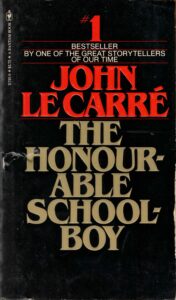
Like many of the John Le Carré novels about his hero-not-hero George Smiley, The Honourable Schoolboy fills page after page (after page, it’s a long book) with taut dialogue and lush description and a sense of sad truth that is likely the biggest lie that either of these two spies, one fictional and one pseudononymous, ever created. The frankly melancholy tale of underworld betrayal and misplaced love in Southeast Asia takes the reader on dizzying descent into world now long gone, a world where Englishmen and Americans vied in the Orient with the Chinese and the former ruled people of the farflung British Empire. Set in the dying days of the Vietnam War, the spy tome serves as an interesting counterpoint to this reader’s view of that shameful yet most American of wars. When Le Carré is on, he’s on, and he’s at his best in this somewhat lugubrious tale.

There were many good books out of this tenth of a century, among them Helen Waddell’s fine book of background and (mostly) sayings of The Desert Fathers, the writings and hagiography and wisdom words passed down from some of the first self-abnegating Christians, the monks and seekers who went into the harsh deserts of northern Egypt region to find a closer relationship with Christ along about the 3rd and 4th Centuries. These tales ring sometimes strange to our modern ears, analguous in some instances with the riddles of ancient Zen. Waddell of course bends the material to her own design, but that bent is towards a more lyrical, more humane wisdom than some of the harshest toils of the desert path. Her rapture (and ours) over the tale of St. Pelagia the Harlot is worthy of the entire book.
| # |
Read |
Author |
Title |
Genre |
| 1041 |
11/4/23 |
Helen Waddell |
The Desert Fathers |
Religion & Spirituality |
| 1042 |
11/8/23 |
Anne Hillerman |
Cave Of Bones |
Mystery |
| 1043 |
11/16/23 |
William Gibson |
Zero History |
SF & Fantasy |
| 1044 |
11/18/23 |
William Gibson |
Pattern Recognition |
SF & Fantasy |
|
11/19/23 |
Hergé |
Prisoners Of The Sun |
Comics |
| 1045 |
11/20/23 |
Robert Van Gulik |
The Chinese Gold Murders |
Mystery |
| 1046 |
11/22/23 |
Bernard Glassman & Rick Fields |
Instructions to the Cook: A Zen Master’s Lessons in Living a Life That Matters |
Religion & Spirituality |
| 1047 |
11/23/23 |
Åke Edwardson |
Frozen Tracks |
Mystery |
| 1048 |
11/25/23 |
John Le Carré |
The Honourable Schoolboy |
Mystery |
| 1049 |
11/25/23 |
John D. MacDonald |
The Quick Red Fox |
Mystery |
|
11/26/23* |
Anant Pai, ed. |
Harischandra: The Story of the Mythological King Whose Name is Synonymous With Truth |
Comics |
|
11/26/23 |
Lakshmi Lal |
Jakata Tales: Elephant Stories |
Comics |
|
11/28/23 |
Mike Baron |
Badger #7 [First] |
Comics |
| 1050 |
11/28/23 |
Robert Nordan |
Death Beneath the Christmas Tree |
Mystery |
* Read a second time; first read 5/18/2016
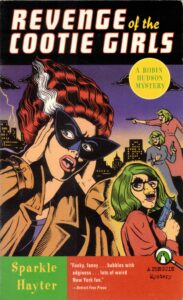
Now this was a book I found myself liking in spite of the fact that I had absolutely no earthly reason to like it. I mean, it’s exactly the kind of book I usually hate, a throw-away mystery full of conincidences and arch inside jokes about single ladies’ life in the Big Apple, and yet …. I really, really liked it. I mean, like “I want to write to the author and tell her how much I liked this book” liked it. Seriously, Sparkle Hayter (and that cannot be a real name, can it?) created a real gem with Revenge Of The Cootie Girls. Did I say ‘like’? No, it was love. I really found myself really really loving this book. Even though this is exactly the sort of fare that I usually (as in always) detest and blame for the downfall of … well, something. But this book was so well-constructed—in spite of ludicrous plot elements and a few deus ex machina—that I found myself just falling in love with the whole thing, and the mystery-not-a-mystery story of Robin Hudson. Sure, you get a lot of “Hey, wait a second!” tingles throughout the first half, but … no, seriously, it’s just very very well done. Maybe I will write the author.

Now I really wanted to tell you how much I’m starting to get into the adventures of The Saint, by Leslie Charteris (which I first came to love through the Vincent Price radio show (not the Roger Moore TV episodes, which are … okay I guess)). But my copy of The Saint Wanted For Murder doesn’t have a dust jacket, and the pic I made of the boards doesn’t ‘pop’, even with the cute logo of The Saint on the green background. So instead I’ll tell you about a beautifully illustrated version of The Book Of Common Prayer that I completed during this particular slice of ten books. The text, of course, is as near to set in stone as anything can be—save for daily devotionals of course. But it’s lavishly illustrated and nicely organized and just has that heft that make for a good book. Which is a good thing, even for those books that are only Good Book adjacent.
| # |
Read |
Author |
Title |
Genre |
|
11/29/23 |
Mike Baron |
Badger #8 [First] |
Comics |
| 1051 |
11/30/23 |
Emily Brontë |
Wuthering Heights |
Fiction |
| 1052 |
11/30/23 |
Eric Schlosser |
Reefer Madness: Sex, Drugs, and Cheap Labor in the American Black Market |
Sociology |
| 1053 |
12/2/23 |
Sparkle Hayter |
Revenge Of The Cootie Girls |
Mystery |
| 1054 |
12/5/23 |
Leslie Charteris |
The Saint Wanted For Murder (Wanted for Murder / The Saint and Mr. Teal) |
Mystery |
| 1055 |
12/6/23 |
Piers Anthony |
Split Infinity |
SF & Fantasy |
| 1056 |
12/7/23 |
Daniel M. Pinkwater |
Yobgorgle |
Children’s |
| 1057 |
12/8/23 |
John Dickson Carr |
The Mad Hatter Mystery |
Mystery |
| 1058 |
12/9/23 |
Piers Anthony |
A Spell For Chameleon |
SF & Fantasy |
| 1059 |
12/9/23 |
Thomas Cleary, trans. |
The Original Face: An Anthology of Rinzai Zen |
Religion & Spirituality |
| 1060 |
12/9/23 |
|
The Book Of Common Prayer |
Religion & Spirituality |
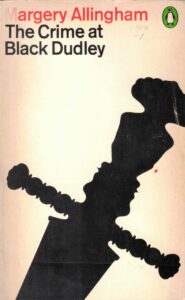
And here I really must say something about Albert Campion, the self-effacing, somewhat unattractive and not very brash detector-type person who is the protagonist of Margery Allingham’s delightful very British mysteries. I started reading his exploits right about this time, having found a trove at the local library book sale (paperbacks are 25¢ each, so I find myself unable to resist). And I just loved him from the very first time I met him in The Crime At Black Dudley. Some of the charms of Ms. Allingham’s series are also failings, as in a certain grotesquerie which certainly pervades this strangely violent yet oh-so-British plot. And though some of the novel’s details and characters are not entirely to my liking, Mr. Campion emerges as a fully realized wonder, someone I could not wait to read more about.
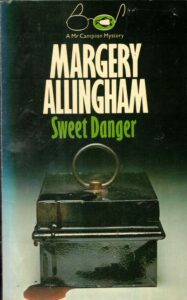
Fortunately I was able to gratify this desire almost immediately, and my liking for the quite silly Mr. Campion continued, in spite of the bizarre nature of many of the Richard Hannay sorts of plots he found himself enmeshed in, and the silly enemies Campion faces, the Huns and that ilk. In Sweet Danger, we start with Campion posing on the French Riviera as a king (or prince, I forget) of some farflung and forgotten principality (which I guess would make him a prince, wouldn’t it?) in the Carpathians, only to give up this ridiculousness and return to England for further and different ridiculousness including the summoning of a demon. It’s delightful, and perhaps this is my favorite I’ve read in the series so far.
| # |
Read |
Author |
Title |
Genre |
| 1061 |
12/10/23 |
Margery Allingham |
The Crime At Black Dudley |
Mystery |
| 1062 |
12/12/23 |
Margery Allingham |
The Gyrth Chalice Mystery [orig. Look To The Lady |
Mystery |
| 1063 |
12/15/23 |
Margaret Frazer |
The Prioress’ Tale [sic] |
Mystery |
| 1064 |
12/23/23 |
Gérard de Nerval |
Selected Writings |
Fiction |
| 1065 |
12/24/23 |
Boris Akunin |
The Death Of Achilles |
Mystery |
| 1066 |
12/28/23 |
Margery Allingham |
Police At The Funeral |
Mystery |
| 1067 |
12/30/23 |
A. F. Price & Wong Mou-lam, trans. |
The Diamond Sutra and The Sutra of Hui-neng |
Religion & Spirituality |
| 1068 |
12/30/23 |
Margery Allingham |
Sweet Danger |
Mystery |
| 1069 |
12/31/23 |
Andrew Mollo |
To The Death’s Head True |
|
| 1070 |
1/2/24 |
George Breitman, Norman Porter, & Baxter Smith |
The Assassination Of Malcolm X |
Conspiracy |
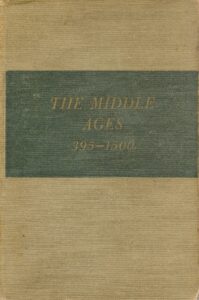
Many ways exist, of course, to judge books of sweeping history. And doubtless this particular book—a textbook of my mother’s in the ’50s and a revision of a work from the beginning of the 20th Century—has had many of its facts and arguments superseded by new research and (more likely) new ideas concerning the period we no longer call The Dark Ages (and they’re not called that here, either). But the book itself is extremely well-written, and covers this huge swathe of time in an engaging and informative manner. One might quibble with this or that emphasis (well, I might), but the authors keep up a steady pace in this work spanning, after all, over a millennium. About those authors: the original writer, Joseph R. Strayer, wrote the ur-version of this book in 1921. After another’s revision, it was up to Dana Carleton Munro to update the book, completely revising it and bringing the work’s study up to the 15th Century. (The original work by Strayer had ended at 1270, for quite sound pedagogical reasons, I’m sure.) The end result, The Middle Ages 395–1500, is a wonderful synthesis of the earlier scholarship and a highly readable work of history, even for a casual reader like myself. If I’m being entirely honest, part of my plaudits for this book are directed at the 9 fold-out maps which add materially to the information of the text, and which are just fun to fold out and to peruse. More fold-out maps, please!
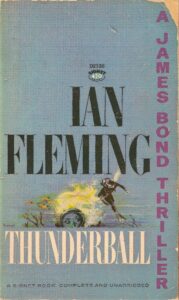
I was going to highlight The John Franklin Bardin Omnibus here, but find that I neglected to scan its cover. So I’ll mention instead another favorite from this set of ten books, Ian Fleming’s 9th book of the adventures of James Bond, Thunderball. The movie (the 4th) is one of my faves, and the theme song is my favorite; I’ve a soft spot for Tom Jones, despite the strong contenders such as Shirley Bassey and Paul McCartney & Wings. The book itself seems to be better than many in the series, perhaps because its plot is kept on track because it began life as a prospective screenplay co-written by Fleming with four others. (The co-credit in my version—“based on a screen treatment by K. McClarthy, J. Whittingham and the author”—is apparently the outcome of a court battle.) Whatever the cause, the plot is more sensible than most, though of course SPECTRE continues to be ridiculous as a criminal conspiracy. Still, it doesn’t suffer from Fleming’s main problem, which is that he seems to have very little idea just what a secret agent superspy might actually do.
| # |
Read |
Author |
Title |
Genre |
| 1071 |
1/14/24 |
Joseph R. Strayer & Dana Carleton Munro |
The Middle Ages 395–1500 |
History |
| 1072 |
1/15/24 |
Agatha Christie |
The Murder Of Roger Ackroyd |
Mystery |
| 1073 |
1/18/24 |
Michael Jecks |
The Last Templar |
Mystery |
| 1074 |
1/18/24 |
T. W. Rhys Davids, trans. |
Buddhist Suttas |
Religion & Spirituality |
| 1075 |
1/19/24 |
Margery Allingham |
Death Of A Ghost |
Mystery |
| 1076 |
1/20/24 |
Sax Rohmer |
Daughter Of Fu Manchu |
Mystery |
| 1077 |
1/25/24 |
Ian Fleming |
Thunderball |
Mystery |
| 1078 |
1/28/24 |
Agatha Christie |
Poirot’s Early Cases |
Mystery |
| 1079 |
1/30/24 |
C. J. Sansom |
Dissolution |
Mystery |
| 1080 |
2/2/24 |
John Franklin Bardin |
The John Franklin Bardin Omnibus |
Mystery |

Re-reading Frank Herbert’s Dune for the first time in decades reminded me of what a staggering accomplishment his magnum opus was. One can say it was ahead of its time—and be referring to its supposed focus upon ecology, oil, or psychedelics. Or one can compare and contrast with the movies that came after (not the William Hurt one, tho’)—and debate the different roles of women, religion, or politics in this or that version. But these points underline the book’s true greatness: almost 60 years after publication (the first half of the book actually appeared in Analog magazine starting in 1963!), Herbert’s work still manages to provide more and more interpretations, and new generations seem able to still find further nuance (and its opposite) within these densely packed pages. Coming back to the original source, I found the feudal medievalism of the political scenes striking, and realized how greatly my memories of the printed word had been subtly altered by Lynch’s staggering film. But Frank Herbert’s greatest triumph is in world-building at a level practically unheard of, at least in the science fiction genre. There are depths upon depths here, though in reading the appendices and the history of the Orange Catholic Bible and the Butlerian Jihad, we can also see that some of these enormous remote buildings may just be painted over wood and paper backdrops.

One great re-read deserves another, and returning to The Crying Of Lot 49 was like sitting in the Brady family’s living room with old friends and passing the bong around while discussing conspiracy theories. Even this most accesible of Thomas Pynchon’s work (I keep seeing people advising new readers of Pynchon to start with Vineland or even—*choke*—Against The Day, and I ask myself why they hate these people so much?) has sentences that challenge the attention and may actually be not best read while stoned. Most of the parallel history and doings of the demimonde (constant themes of Pynchon) will be quite well known nowadays, at least were to me, though I did find myself going down a few rabbit holes looking up the visit of the Russian Navy to San Francisco during the Civil War and trying to pinpoint that reference made to Motley’s magisterial Rise Of The Dutch Republic, and the Jacobean play at the center of Lot 49 made me go out and read right away The Tragedy of The Duchess of Malfi. But Pynchon manages to pack into these 138 pages (in my edition) so much much more than most authors uncover in their entire oeuvre. Like Against The Day, there are unresolved unanswered questions here, but … well, the worlds of the squares and the hip in America are not separate countries, but somehow manage to co-exist simultaneously, in all their contradictory glory. That Mr. Pynchon manages to put Heisenberg’s United States into this small a box is a testament to his incredible genius.
| # |
Read |
Author |
Title |
Genre |
| 1081 |
2/4/24 |
Michael Bonner, ed. |
Uncut Magazine August 2023 |
Music |
| 1082 |
2/5/24 |
Jean de Brunhoff |
Les Aventures de Babar |
Foreign Language |
| 1083 |
2/7/24 |
Frank Herbert |
Dune |
SF & Fantasy |
| 1084 |
2/10/24 |
Margery Allingham |
Flowers For The Judge [aka Legacy In Blood] |
Mystery |
| 1085 |
2/14/24 |
H. P. Lovecraft |
At The Mountains Of Madness and Other Tales of Terror |
Horror |
| 1086 |
2/17/24 |
Margery Allingham |
Dancers In Mourning |
Mystery |
| 1087 |
2/20/24 |
Thomas Pynchon |
The Crying Of Lot 49 |
Fiction |
|
2/20/24 |
Meera Ugra |
The Hidden Treasure: A Jakata Tale |
Comics |
| 1088 |
2/21/24 |
Margery Allingham |
Mr. Campion: Criminologist |
Mystery |
|
2/22/24 |
Meera Ugra |
Jakata Tales: The magic chant and other stories |
Comics |
| 1089 |
2/23/24 |
Ross Macdonald |
The Drowning Pool |
Mystery |
| 1090 |
2/24/24 |
Bob Murphy |
Desert Shadows: A True Story of the Charles Manson Family in Death Valley |
True Crime |

I’ve been working through my comics lately, approaching them from both ends—meaning Amar Chitra Katha and Badger at one pole, and of course Zap Comix at the other. This particular issue, Zap Comix #1, was pretty much an all R. Crumb production, though interestingly (according to Mister Wikipedia) was not originally supposed to be the first issue, indeed, was not even extant, as the original strips by Crumb were apparently stolen or at least taken out of the country by a Philadelphia publisher. There’s lots of good stuff here, and it is condign that Mr. Natural has pride of place on the cover. Later issues would showcase other fantastic artists of the underground ‘comix’ movement, and issue #4 of Zap gives me all sorts of … funny feelings, perhaps more appropriate for the pages of Young Lust.

Ah! The joys of Little Libraries! A while back—last Christmastime—I found a whole passel of the Penguin Modern Poets series just sitting in a Little Library near my home, and I selfishly grabbed the lot. I am working my way slowly through the books (I’ve just started the third poet in the third volume), but I was quite blown away by that first trio of poets in the first volume pictured here; well, two-thirds of them at least. The Lawrence Durrell was a revelation, in that I had no idea the author of the Alexandria Quartet also wrote very good poetry. The R. S. Thomas was also a revelation, though likely only to such a one as I who has no idea about such things, for Mr. Thomas was a quite well known Welsh poet for decades and decades. I loved so much of his verse in the Penguin collection that I’ve taken to searching for him in every used bookstore I spend time in. (No luck so far, but I need more books like the proverbial you-know-what.) His “Cynddylan on a Tractor” I loved so much that I added it to my personal anthology of the poems I love best.
| # |
Read |
Author |
Title |
Genre |
| 1091 |
2/25/24 |
CALL (Center for Army Lessons Learned) |
Operation Enduring Freedom III |
Militaria |
|
2/25/24 |
Mike Baron |
Badger #9 |
Comics |
| 1092 |
2/26/24 |
Ruth Fenisong |
The Wench Is Dead … |
Mystery |
|
2/26/24 |
R. Crumb, et al. |
Zap Comix #4 |
Comics |
| 1093 |
2/27/24 |
Erle Stanley Gardner |
The Case Of The Turning Tide |
Mystery |
|
2/27/24 |
R. Crumb, et al. |
Zap Comix #2 |
Comics |
|
2/28/24 |
R. Crumb |
Zap Comix #1 |
Comics |
| 1094 |
2/28/24 |
John Webster |
The Tragedy of The Duchess of Malfi |
Drama |
| 1095 |
2/29/24 |
Lawrence Durrell, Elizabeth Jennings, & R. S. Thomas |
Penguin Modern Poets 1: Durrell Jennings Thomas |
Poetry |
| 1096 |
2/29/24 |
Scott F. Crider |
Office Of Assertion: An Art Of Rhetoric For Academic Essay |
Reference |
| 1097 |
3/1/24 |
Iain Pears |
Death And Restoration |
Mystery |
| 1098 |
3/3/24 |
Jane Langon |
The Fact On The Wall |
Mystery |
| 1099 |
3/5/24 |
Josephine Tey |
A Shiling For Candles |
Mystery |
| 1100 |
3/6/24 |
Isaac Asimov |
The Sensuous Dirty Old Man |
Humor |
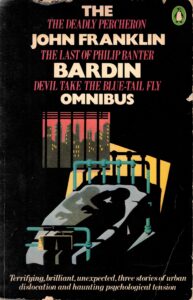
So I did manage to find that John Franklin Bardin book; I hadn’t put it away with the other already-read books just yet. And though I won’t bore you (further) with a description of its three excellent (well, some parts are quasi-excellent) tales, I’ll leave the image here for you to comtemplate like a mandala of murder. I see that turning back on the spigot of the Mysteries genre in this last set of a hundred books led once more to their overwhelming predominance, with over a third of my top-rated books in that category. (Second most winning group were the Comic Books, which of course I’ve said elsewhere don’t really count.) That emphasis seems likely to endure into the next hundred books, where almost a third of the 60 books I’ve already read since the 1100th book above are in that genre as well. This, no doubt, is because I take these to read at work during my lunch break etc., as a serious inquisition into the role of the concept of Free Will in the development of mid-17th-Century Capitalism can be hard to follow with constant interruptions for this or that service call. Ah, well. So seems I’ll be talking to you about Books #s 1101 – 1200 in the not too far distant future. Until then, happy reading!
The lists of previously read books may be found by following the links:

